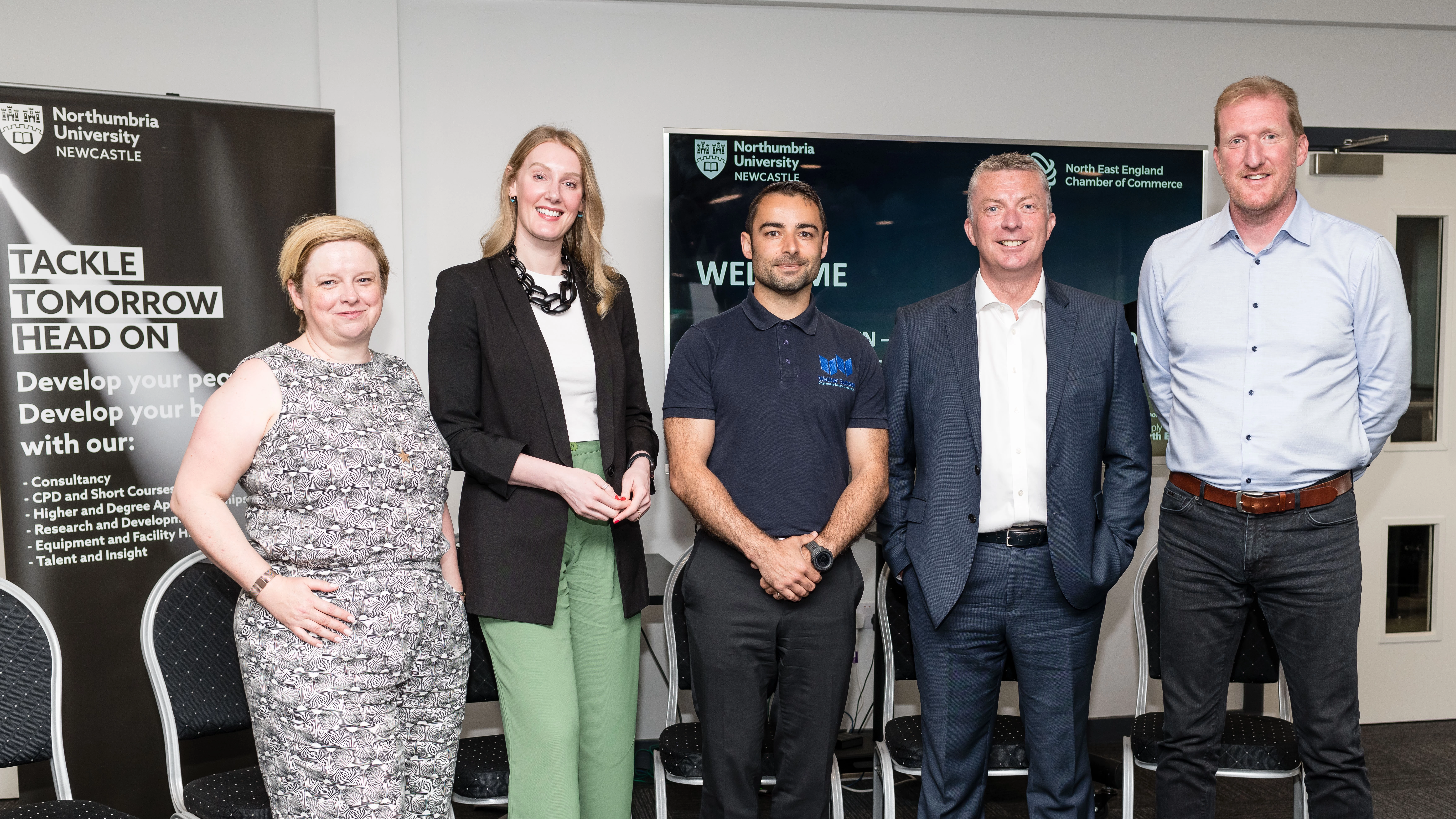
‘Grow your own’ and help your people to build new skills, knowledge and ways of thinking
Talent attraction and retention remains a top priority, and often a key challenge, for many North East businesses.
Last week, Northumbria University and the North East England Chamber of Commerce brought together the worlds of business, academia, and sport to discuss how employers can take a proactive approach to recruiting, developing and retaining their people.
Hosted at Newcastle Eagles’ Vertu Motors Arena, Eagles MD Paul Blake provided the welcome and shared his reflections on shaping and leading his ambitious team and the positive transition to more flexible ways of working post-Covid.
Chamber chief executive, John McCabe gave the keynote presentation, in which he outlined the scale of the challenge – reinforced by data from the Chamber’s quarterly economic survey – and made a clear case for businesses to invest in developing and nurturing their talent and future leaders. John cited three compelling reasons:
- It’s the right thing to do for your employees.
- It makes business sense as an employer.
- It improves your corporate image and reputation, which in turn supports future talent attraction and retention.
John went on to share practical recommendations and top tips for business leaders, including: a values-led approach to recruitment, particularly when skills are difficult to find; the importance of creating a targeted plan for developing future leaders within your business; and a proactive approach to wellbeing and inclusivity, in order to access untapped talent and retain valued employees.

Next, Dr Helen Charlton, senior lecturer in leadership and HR management at Northumbria University, teamed up with Vahid Walker – technical director at Walker Subsea – to look at what makes a good leader and the risks of allowing your most valuable assets (your people) to be managed by those without the right skills and training to do so.
Dr Charlton said: “All too often, people come to management or leadership roles within a business by circumstance, rather than design. Without the right skills or behaviours, it can be difficult to operate effectively and can have a profoundly negative impact on the wellbeing and motivation of both the individual concerned and the team around them. Ensuring that leaders, at all levels, have the necessary confidence, support and skills is an important part of any retention strategy.”
The final presentation was delivered by Alix Bolton, Group HR Director at Walker Filtration, who challenged the audience to consider jobs of the future and the underpinning skills and attributes that will be as relevant and important in future decades as they are now.
Alix said: “It’s not all about software development, cyber security, and technology. Rather it’s about creativity, problem solving, analytical thinking and innovation. Jobs aren’t vanishing, just changing!” Alix went on to explore some of the myths and truths around engaging, inspiring and retaining staff and the importance of creating a sense of belonging with a business.
To conclude the event, John McCabe chaired a lively Q&A session with the audience of business leaders and HR professionals, covering everything from the opportunities and risks associated with AI, to the benefits of cementing leadership skills through degree apprenticeships and professional management programmes.
To find out more about how you can ‘grow your own’ and help your people to build new skills, new knowledge and new ways of thinking, visit our Resources For Your Business webpage.
Discover workforce development programmes from Northumbria University
This was posted in Bdaily's Members' News section by Northumbria University .
Enjoy the read? Get Bdaily delivered.
Sign up to receive our daily bulletin, sent to your inbox, for free.








 Raising the bar to boost North East growth
Raising the bar to boost North East growth
 Navigating the messy middle of business growth
Navigating the messy middle of business growth
 We must make it easier to hire young people
We must make it easier to hire young people
 Why community-based care is key to NHS' future
Why community-based care is key to NHS' future
 Culture, confidence and creativity in the North East
Culture, confidence and creativity in the North East
 Putting in the groundwork to boost skills
Putting in the groundwork to boost skills
 £100,000 milestone drives forward STEM work
£100,000 milestone drives forward STEM work
 Restoring confidence for the economic road ahead
Restoring confidence for the economic road ahead
 Ready to scale? Buy-and-build offers opportunity
Ready to scale? Buy-and-build offers opportunity
 When will our regional economy grow?
When will our regional economy grow?
 Creating a thriving North East construction sector
Creating a thriving North East construction sector
 Why investors are still backing the North East
Why investors are still backing the North East